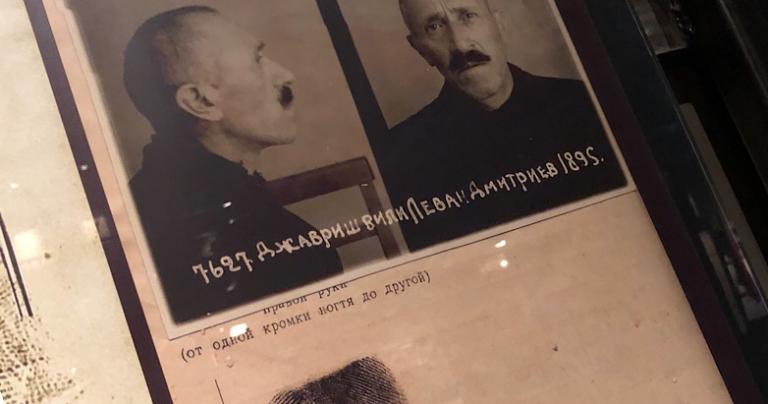 Plato could foretell the future, but he was no prophet.
Plato could foretell the future, but he was no prophet.
How?
A wise person knows that a city or nation that sows injustice will reap hatred and nobody ever feasted on hatred. Hate is a crop that starves affection, withers jollification, and destroys civilizations.
We should not need someone with supernatural gifts or even someone as wise as Plato to tell us what happens when injustice rules a city, but when we think in terms of short term gain, then we must be reminded. The prophet Amos says:
6 Thus says the Lord:
For three transgressions of Israel,
and for four, I will not revoke the punishment;
because they sell the righteous for silver,
and the needy for a pair of sandals—
7 they who trample the head of the poor into the dust of the earth,
and push the afflicted out of the way;
father and son go in to the same girl,
so that my holy name is profaned;
8 they lay themselves down beside every altar
on garments taken in pledge;
and in the house of their God they drink
wine bought with fines they imposed.
Injustice in the Bible always begins in oppression of the poor over money. The rulers want stuff, something as simple as new sandals, and so sell the poor. This always ends in moral decadence, because a society that can allows her rulers to grow rich on the workers will soon remove all other moral restraints to elite enjoyment. Some parts of society might attack one vice, another the other, but both are linked.
(Lord Jesus Christ, son of God, have mercy on me a sinner.)
If prophets are not enough, philosophers such as Plato remind us of the same truth:
Then it becomes apparent that wherever injustice appears-in the city, in the family, or in the individual-it first spawns factions and disunion and then excites enmity among the divided parts. Finally, anything so at odds with itself must become its own enemy as well as the enemy of all who are just.
Later in Republic, Plato will show that injustice to some part of the city will not be contained and all moral restraints will be lost. His own city, Athens, culminates her decline in the execution of Socrates. Plato predicts a pattern of decline in a city with unjust rulers.
The unjust city will be riven with factions and disunion.
Injustice does harm and the natural reaction to harm is hatred. Hatred breeds more hatred and soon every faction has a true grievance and unity becomes possible.
The unjust city will soon develop political civil war.
You can disagree with a man who is wrong, even if he is stubborn in his error. There is no ultimate compromise possible with moral evil. If a ruler intends to oppress or rob the poor, he must go. If immorality becomes policy, then the social order that celebrates vice (see Amos) cannot be sustained by just people.
Yet a civil war does great harm and must be avoided if at all possible.
The unjust city will develop self-loathing and hate the just.
Patriotism is good for us, but is hard when injustice is enshrined as policy. One response will be self-loathing, natural, but toxic to the soul. Worse would be saying out sins are not sins and making them virtues. This happens in American when our wealthy educated elite enshrine their sexual sins as virtues against the moral judgements of the poor of the globe as they continue to the practice injustice toward those same poor persons to sustain their lifestyles. The situation is not improved by any American who attacks one side of this immoral equation seen by Amos and not the other.
Of course no city, family, or individual is perfectly just. We all do injustice. There is none just, no, not one, but there is a difference between the city, family, or individual who is growing toward justice as opposed to injustice. The bad will always bring bad fruit, but we can survive if the good is greater. Jesus said that before the End, we must put up with the weeds in order to reap the grain.
We need not despair, but ask for mercy. We will do injustice, but we can repent and do better. Our youth may have been misspent (God help me), but we can make sure to live an old age of service if we can. When we see factions and disunion, we can do justice to unite what injustice is breaking. When we see civil war, we can make peace or find the just cause and fight for that cause (even if that means forming a third side). When we are self-loathing, we can look for injustice in our lives, repent, change our actions, and move on.
We cannot find perfectly just people, but we can praise justice in people whenever we see it!
May I heed the word of the prophet and the warnings of the philosopher and have a trajectory towards justice.
———————————————-
*I begin an informal summer reading of Republic using Scott/Sterling (a new translation for me). Part 1. Part 2. Part 3. Part 4. Part 5. Part 6. Part 7. Part 8. Part 9. Part 10. Part 11. Part 12. Part 13. Part 14. Part 15. Part 16. Part 17. Part 18. Part 19. Part 20. Part 21. Part 22. Part 23. Part 24. Part 25. Part 26. Part 27. Part 28. Part 29. Part 30. Part 31. Part 32. Part 33. Part 34. Part 35. Part 36. Part 37. Part 38. Part 39. Part 40. Part 41. Part 42. Part 43. Part 44. Part 45. Part 45.5. Part 46. Part 47. Part 48. Part 49.












